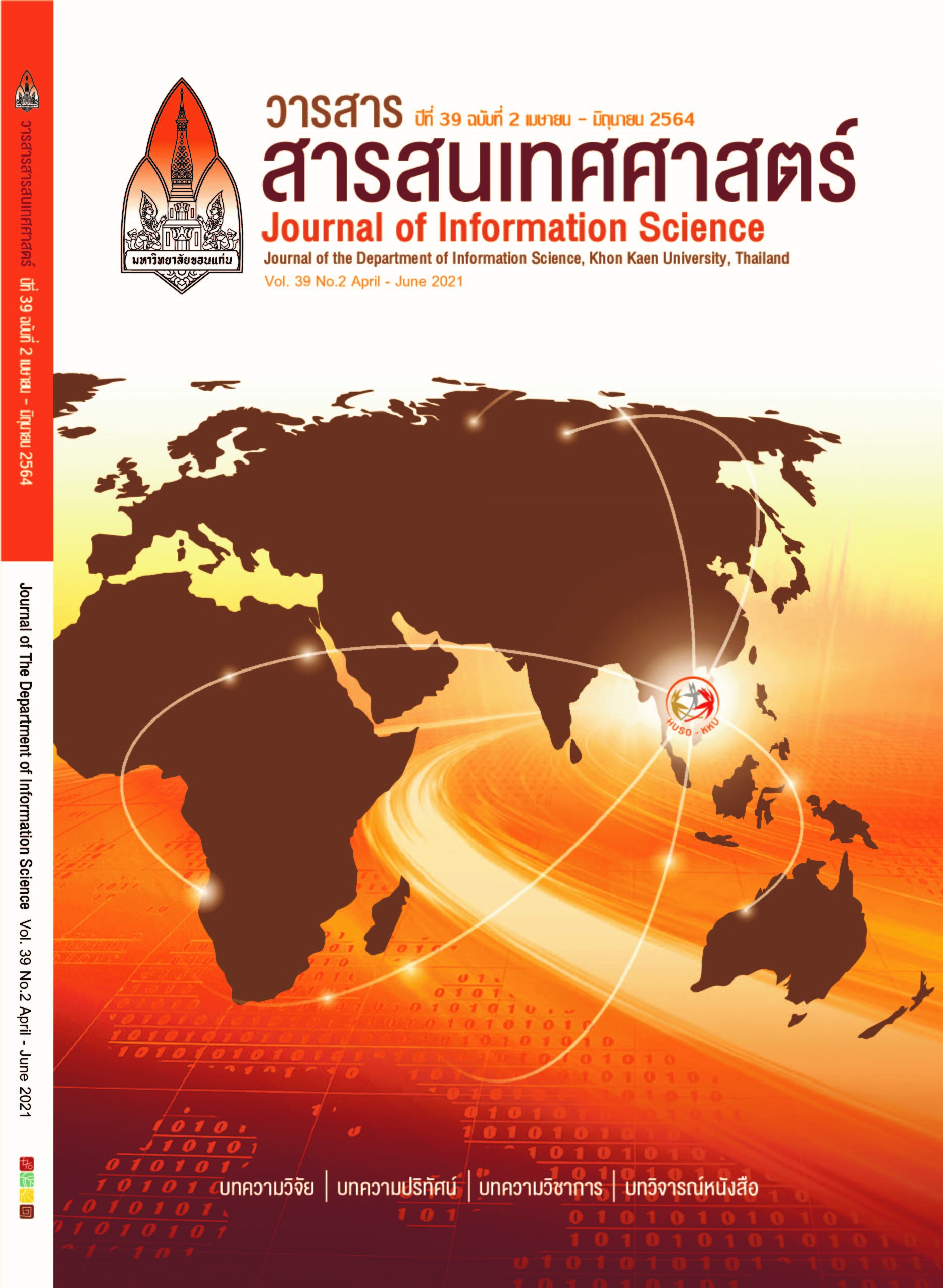Digital Literacy Skill Development of Chiang Mai Rajabhat University Students for improving learning Quality
DOI:
https://doi.org/10.14456/jiskku.2021.8Keywords:
Digital literacy, Digital literacy development, Student, Chiang Mai Rajabhat UniversityAbstract
Purpose of the study: This study examines the digital literacy capabilities and proposes a digital literacy skill model for Chiangmai Rajabhat university students.
Methodology: This R & D study is undertaken in two parts. Part one describes the digital literacy testing of 745 freshmen sample who have been taking the digital literacy course GE 1402 offered in 2020 using digital literacy assessment forms. Part two is a focus group comprising digital literacy experts who provide recommendations for developing the digital literacy development model for Chiangmai Rajabhat University students
Main findings: The majority of research participants are found to be digital literates. Their highest test scores and mean fall on digital skills component 4 - the cognitive skills, followed by skill component 2 - thinking skill, and 3 - collaborative skills. However, their skill component 1 – practical skills is found to be at the moderate level. Moreover, the digital literacy development model of Rajabaht University students comprises 4 elements: 1) digital literacy skill development process 2) instructional media for digital skill development 3) learning opportunity for improving their digital literacy skills and 4) learning environment within the university.
Application of the study: Findings of this research could help the administrators, chairmen of the study programs and instructors of Chiangmai Rajabhat University in formulating digital literacy skill development plan for improving their students’ digital literacy competencies. In addition, the literacy skill development planners should pay more attention on component 1 – practical skills, from which the students obtain the lowest test scores and mean.
Downloads
References
Downes, S. (2005). Elearning 2.0. Elearn Magazine. Retrieved 26 November 2020, from
https://dl.acm.org/doi/fullHtml/10.1145/1104966.1104968
Kaeophanuek, S., Na-Songkhla, J. & Nilsook, P. (2018). How to enhance digital literacy skills among information sciences students. International Journal of Information and Education Technology, 8(4), 292-297. doi: 10.18178/ijiet.2018.8.4.1050
Lippincott, J.K. (2007). Student content creators: Concergence of literacies. Educourse Review, 16-17
Littlejohn, A., Beetham, K., & McGill, L. (2012). Learning at the digital frontier: A review of digital literacies in theory and practice. Journal of Computer Assisted Learning, 28, 547-556.
Margaryan, A., Littlejohn, A., & Vojt, G. (2011). Are digital natives amyth or reality? University students’ use of digital technologies. Computer & Education, 56, 429-440.
Martin, A. & Grudziecki, J. (2006). DigEuLit: Concepts and Tools for Digital Literacy Development. Innovation in Teaching and Learning in Information and Computer Sciences, 5:4, 249-267, DOI: 10.11120/ital.2006.05040249
McShane, I. (2011). Public libraries, digital literacy and partipatory culture. Discourse: Studies in the Cultural Politics of Education, 32(3), 383-397.
Office of the National Digital Economy and Society Commission. (2017). Policy and plan digital Development for National Economic and Social Development (2018 – 2037). Retrieved 26 November 2020, from https://www.onde.go.th/ assets/portals/ 1/files/620425-Government%20Gazette.PDF
Saechan, T., & Morsorn, T. (2017). Digital Literacy: Definition, Component and Current Situation. Journal of Information Science, 34(4). Retrieved 26 November 2020, from https://so03.tci-thaijo.org/index.php/jiskku/article/view/81049
Shopova, T. (2014). Digital literacy of students and its improvement at the university. Journal of Efficiency and Responsibility in Education and Science, 7(2), 26-32. Techataweewan, W. & Prasertsin, U. (2016). Development of digital literacy test for undergraduate students. (in Thai) Bangkok: Department of Library and Information Science, Faculty of Humanities, Srinakharinwirot University.
Techataweewan, W. & Prasertsin, U. (2018). Development of digital literacy indicators for Thai undergraduate students using mixed method research. Kasetsart Journal of Social Sciences, 39(2), 215-221. https://doi.org/10.1016/j.kjss.2017.07.001.
Wongyai, N. (2017). A guide to developing digital literacy skills of digital native. Veridian E-Journal,Silpakorn University, 10(2), 1630-1642.








